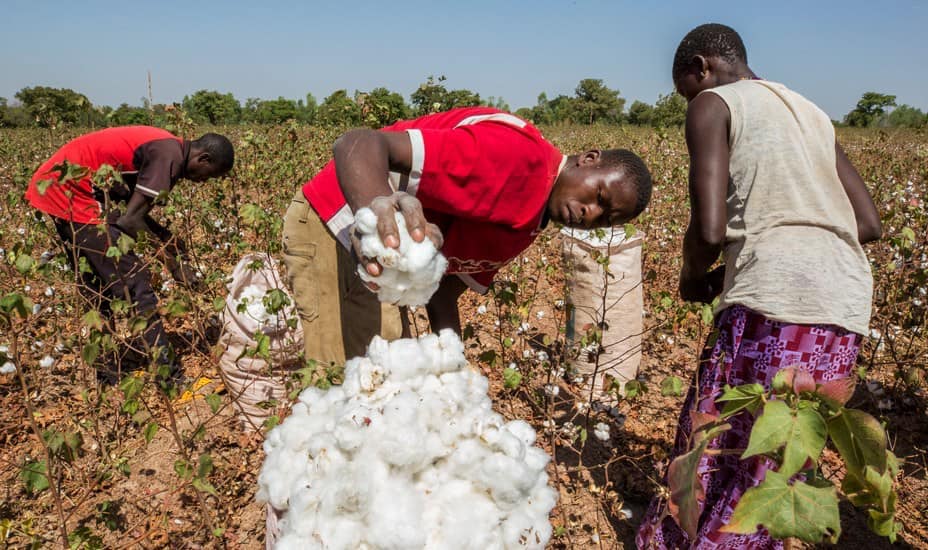There are no products in your shopping cart.
| 0 Items | £0.00 |


Ayo Akinfe
(1) Do you know that Nigeria once used to have 25 textile mills and at one stage was Africa’s largest cotton producer with an annual crop of over 600,000 tonnes, making her the 12th largest producer in the world?
(2) Today, Nigeria spends about $4bn importing finished textiles as virtually all of our mills have shut and production has fallen to about 290,000. What little we produce now is exported in its raw form, processed in countries like India and China and sold back to us at 500% mark-up
(3) Today, Benin Republic, Mali, Ivory Coast, Burkina Faso, Cameroon, Sudan, Togo, Tanzania and Ethiopia all produce more cotton than Nigeria
(4) Cotton is one of the most demanded cash crops in the world because of its uses in the production of fabric in the clothing industry. In simple terms, as long as people keep wearing clothes, there would always be a high demand for cotton.
(5) Cotton does not only just contribute to the economic output of any nation that grows it, but can also be beneficial to the health of the people, as the seeds produce healthy oil, which are great sources of Vitamin E and low in cholesterol
(6) Before Nigeria’s focus on oil, cotton exports accounted for about 25% of country’s gross domestic product (GDP) but after the oil adjustment, cotton exportation reduced drastically and presently accounts for around 5% of GDP
(7) Of late, the Nigerian government has approved the genetically modified cotton production to help boost yields but is only half of the problem. Where are the commercial farmers to mass produce these crops?
(8) Given that Nigerian cotton producers will be competing against farmers in the US, China, India and Mexico, they have no “tropical advantage” as would be the case with say cocoa, palm oil, neem, yam, cassava or kolanuts for instance. As we all know, the US will subsidise its farmers to under-cut any opposition. This means Nigerian output has to be highly competitive
(9) We cannot leave cotton production to subsistence farmers and small croppers. Neither can we let the inefficient government take over with its inherent red tape, nepotism and corruption. This is where we face a dilemma. Where is the thriving private sector to fill the vacuum?
(10) For me, the solution is simple. About 90% of those involved in politics in Nigeria are businessmen looking for commercial opportunities. We have to find a way to move them away from government and into commercial farming where they can make as much money as they like